The 2012 MacBook Air (11 & 13-inch) Review
by Anand Lal Shimpi on July 16, 2012 12:53 PM EST- Posted in
- Apple
- Mac
- MacBook Air
- Laptops
- Notebooks
GPU Performance
All of the 2012 MacBook Air models use Intel's HD 4000 processor graphics. Similar to last year, there's no discrete GPU option. In these thermally constrained environments, Intel's HD 4000 does its best to shine compared to the 3000. And it delivers.
There's no real difference in GPU performance between the 11 and 13-inch MacBook Air, they both have an HD 4000 on-die and both perform pretty similarly. The bad news is neither is really fast enough to drive higher resolution external displays, but you can get reasonable performance in many of the hot titles on OS X today - at native panel resolution.
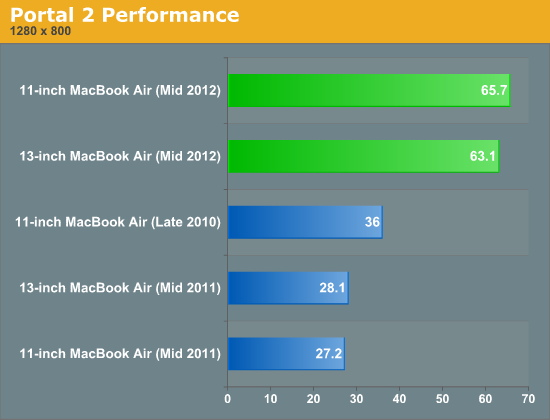
Both models deliver over 60 fps in Portal 2 at 1280 x 800. More important is the fact that the 2012 MacBook Air finally delivers better GPU performance, across the board, than the 2010 MacBook Air did with its off-processor NVIDIA GPU.
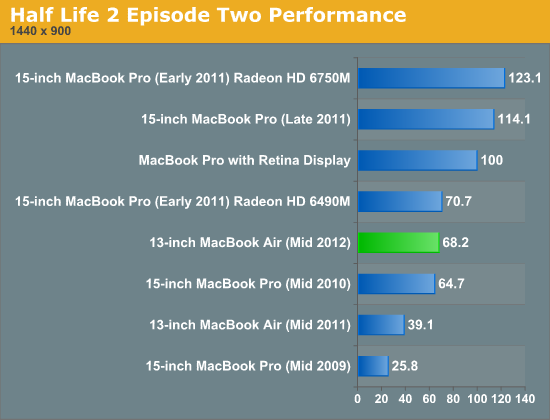
Similarly strong performance is available under Half Life 2 Episode Two.
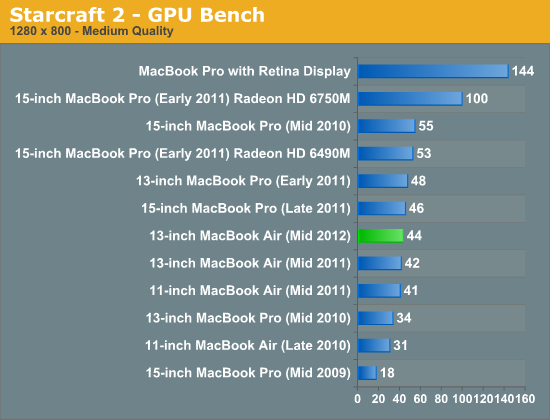
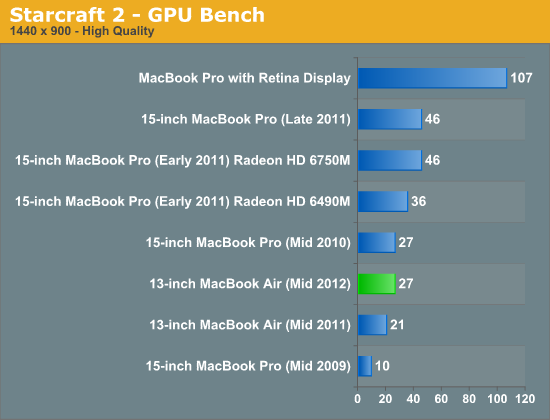
Starcraft 2 shows very little progress over the 2011 MacBook Air in the GPU tests, mostly because we're actually CPU limited here. These benchmarks only end up GPU bound at higher resolutions it seems.
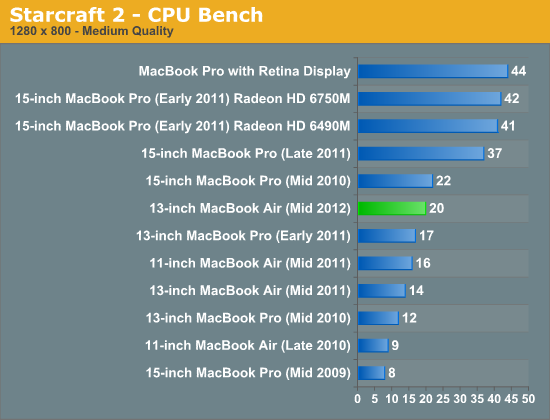
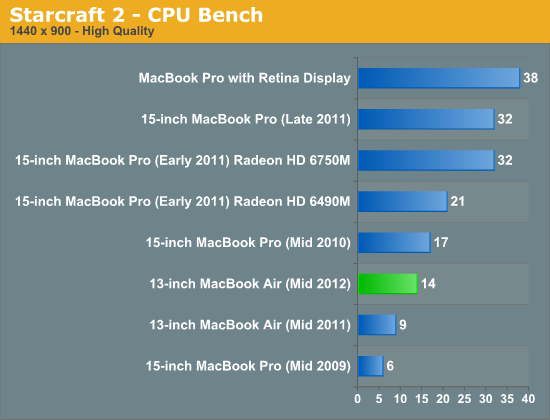
In a further bout of backwardness, our SC2 CPU tests end up being more GPU bound on the MacBook Air which yields significant performance improvements. Unfortunately neither SC2 benchmark provides particularly good results for the HD 4000.
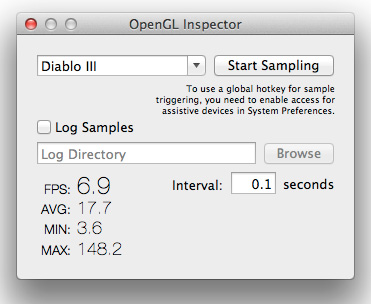
Remember that challenge for a FRAPS equivalent in OS X from the rMBP review?
I played through about an hour of Diablo III on the 13-inch MacBook Air at native resolution and at high quality settings (no AA). The game is playable on the machine, however it is far from smooth. I averaged 17.7 fps throughout my play test, with frame rates dropping as low as 7 fps with lots of baddies and explosions on the screen. It's workable in a pinch, but not ideal. If you really care about gaming on your Mac you'll need to go Pro.










190 Comments
View All Comments
C1aymore - Monday, July 16, 2012 - link
Nothing, just want to be the firstkrylon - Monday, July 16, 2012 - link
how about I go first all over your face?Spunjji - Tuesday, July 17, 2012 - link
Bahahassddaydream - Monday, July 16, 2012 - link
I really hate it when people do that^I am wondering what percentage of "power users" will start trending towards machines like the MacBook Air and Pro. It seems that the cost differences are eroding away between the likes of computers like Clevo-based Malibal and Apple products.
It seems to me that the Apple products are priced pretty competitively, and offer more flexibility by being able run OSX as well as Windows or Linux.
I doubt I'll purchase an Apple computer, but it seems more compelling than ever, especially with the display on the MacBook Pro.
ananduser - Monday, July 16, 2012 - link
Yes...Apple is to be commended for allowing choice in the OS department, unlike other OEMs.Only the boss is qualified to review them apples, eh Anand :)
Samus - Monday, July 16, 2012 - link
what? choice in os? every 'OEM' that's tried to make a Mac OSX compatible computer has been sued out of business by Apple.I don't see how Apple giving you choice because they don't allow their competitors to have any is something to be commended!
OCedHrt - Monday, July 16, 2012 - link
And compatibility issues (USD 3.0, WIFI) is the peripheral's manufacturer's fault on OS X. But on Windows damn that Microsoft!!!KPOM - Tuesday, July 17, 2012 - link
Where has Anand ever blamed Microsoft because some random peripheral doesn't work right? In general, it's up to the peripheral manufacturer to write decent drivers. Because of OS X's small market share, a lot of manufacturers don't bother, or at least don't do as good a job of writing OS X drivers as they do Windows drivers.ananduser - Tuesday, July 17, 2012 - link
Apple is the one in control of OSX' drivers. The manufacturers of various interfaces have no say.KPOM - Tuesday, July 17, 2012 - link
No, individual peripheral manufacturers write their own OS X drivers. Apple has standards, but even Microsoft requires digital signing.Apple isn't in the business of writing drivers for every peripheral out there. They provide APIs to let peripheral manufacturer write their own drivers.